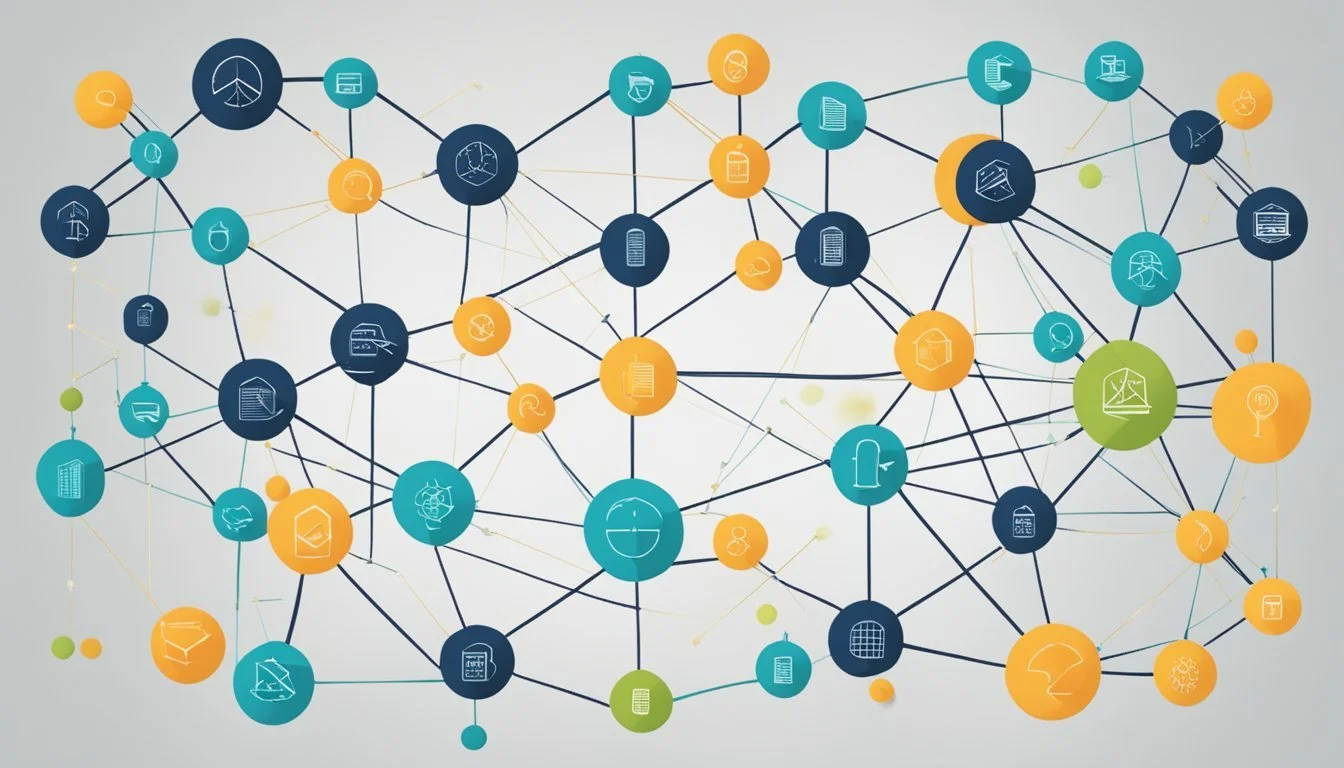Effective Strategies for Managing Impulsivity
Impulsivity can significantly impact daily life, relationships, and personal goals. Fortunately, there are effective interventions to help manage impulsive behaviors and improve self-control. Mindfulness techniques, cognitive-behavioral strategies, and skill-building exercises can all play a role in reducing impulsivity and promoting more thoughtful decision-making.
These interventions focus on developing awareness of triggers, learning to pause before acting, and considering consequences. Some approaches involve practicing relaxation techniques, while others emphasize structuring one's environment to minimize temptations. Many people find success by combining multiple strategies tailored to their specific needs and challenges.
With consistent effort and the right tools, individuals can make substantial progress in managing impulsivity. This article explores various evidence-based interventions, providing practical tips and insights for those seeking to enhance their impulse control and lead more balanced lives.
Understanding Impulsivity
Impulsivity is a complex behavioral trait characterized by actions without forethought. It involves multiple brain regions and neurotransmitter systems, changing throughout a person's life.
Defining Impulsivity
Impulsivity refers to rapid, unplanned reactions to stimuli without considering consequences. It manifests as difficulty inhibiting responses, preference for immediate rewards, and risky decision-making. Impulsive individuals often struggle with self-regulation and impulse control.
Key features of impulsivity include:
Acting without thinking
Difficulty delaying gratification
Lack of planning or forethought
Increased risk-taking behaviors
Impulsivity exists on a spectrum, with some degree present in all individuals. Excessive impulsivity can interfere with daily functioning and relationships.
Neurobiological Underpinnings
The prefrontal cortex plays a crucial role in impulse control. This brain region is responsible for executive functions like planning, decision-making, and inhibition. Impulsivity is associated with reduced prefrontal cortex activity and altered connectivity with other brain areas.
Neurotransmitter systems, particularly dopamine, are implicated in impulsive behavior. Dopamine is involved in reward processing and motivation. Imbalances in dopamine signaling can lead to increased impulsivity.
Other factors contributing to impulsivity include:
Genetics
Brain structure and function
Neurotransmitter levels
Environmental influences
Impulsivity Across the Lifespan
Impulsivity levels change throughout development. Young children naturally exhibit higher impulsivity due to immature prefrontal cortex development. As the brain matures, impulse control typically improves.
Adolescence is marked by increased risk-taking and impulsivity. This is partly due to ongoing brain development and heightened sensitivity to rewards. Impulsivity tends to decrease in adulthood as the prefrontal cortex fully matures.
In older adults, some aspects of impulse control may decline due to age-related changes in brain function. However, life experience and learned strategies can help compensate for these changes.
Factors affecting impulsivity across the lifespan include:
Brain development
Hormonal changes
Life experiences
Cognitive abilities
Impulsivity and Mental Health Disorders
Impulsivity is a key symptom in several mental health disorders, affecting behavior, decision-making, and emotional regulation. It manifests differently across various conditions, impacting individuals' daily functioning and quality of life.
ADHD and Impulsivity
Attention Deficit Hyperactivity Disorder (ADHD) is strongly associated with impulsivity. Individuals with ADHD often act without thinking, interrupting others or making hasty decisions. This impulsiveness can lead to:
Difficulty waiting for turns
Blurting out answers before questions are completed
Making rash financial choices
Treatment typically involves a combination of medication and behavioral therapy. Stimulant medications like methylphenidate help regulate brain chemistry, while cognitive-behavioral therapy teaches strategies to manage impulsive behaviors.
Borderline Personality Disorder
Borderline Personality Disorder (BPD) is characterized by intense emotions and impulsive actions. People with BPD may engage in:
Risky sexual behavior
Substance abuse
Self-harm or suicidal gestures
These impulsive behaviors often stem from fear of abandonment or emotional instability. Dialectical Behavior Therapy (DBT) is a primary treatment for BPD, focusing on mindfulness, emotion regulation, and interpersonal effectiveness skills.
Substance Use Disorders
Impulsivity plays a significant role in substance use disorders. It can contribute to:
Initial experimentation with drugs or alcohol
Difficulty resisting cravings
Continued use despite negative consequences
People with substance use disorders often struggle with impulse control, leading to compulsive drug-seeking behavior. Treatment approaches include:
Cognitive-behavioral therapy
Motivational interviewing
Medication-assisted treatment for specific addictions
Other Associated Disorders
Several other mental health conditions involve impulsivity as a key feature:
Bipolar Disorder: During manic episodes, individuals may engage in reckless spending, risky sexual behavior, or impulsive career decisions.
Antisocial Personality Disorder: Characterized by a disregard for others' rights and impulsive, often criminal, behavior.
Intermittent Explosive Disorder: Involves recurrent, impulsive outbursts of verbal or physical aggression disproportionate to the situation.
Pyromania and Kleptomania: These impulse control disorders involve the irresistible urge to set fires or steal, respectively.
Diagnostic criteria for these disorders are outlined in the DSM-5. Treatment often involves a combination of medication and psychotherapy tailored to the specific condition and individual needs.
Consequences of Impulsive Behaviors
Impulsive behaviors can have far-reaching effects on various aspects of a person's life. These actions often lead to strained relationships, difficulties in daily functioning, and increased exposure to dangerous situations.
Impact on Relationships
Impulsive behavior frequently causes tension in personal and professional relationships. Emotional outbursts and rash decisions can erode trust and communication. Partners may feel frustrated by impulsive spending or sudden changes in plans.
Friendships can suffer when impulsive individuals frequently cancel commitments or make insensitive remarks without thinking. In work settings, impulsivity may manifest as interrupting colleagues or making hasty decisions that affect team dynamics.
Sexual impulsivity can lead to infidelity or risky sexual behaviors, potentially damaging intimate relationships and personal health.
Challenges in Daily Activities
Impulsive actions often disrupt daily routines and responsibilities. Individuals might struggle with time management, frequently running late or forgetting important tasks.
Financial stability can be compromised by impulsive shopping sprees or poorly thought-out investments. This can lead to debt and financial stress.
At work, impulsivity may result in missed deadlines, incomplete projects, or careless errors. These issues can hinder career advancement and job satisfaction.
Impulsive eating habits can negatively impact health and nutrition, leading to weight fluctuations and potential health problems.
Increased Risk for Hazardous Behaviors
Impulsivity significantly raises the likelihood of engaging in dangerous activities. Reckless driving, such as speeding or sudden lane changes, increases the risk of accidents and legal consequences.
Substance abuse is more common among impulsive individuals, who may use drugs or alcohol without considering long-term effects. This can lead to addiction and associated health issues.
Impulsive anger may result in verbal or physical aggression, potentially leading to legal trouble or damaged relationships.
Risk-taking behaviors like gambling or extreme sports without proper precautions can result in financial losses or physical injuries.
Interventions and Treatments
Various approaches can help manage impulsivity, including psychotherapy, medication, and lifestyle changes. These interventions aim to improve self-control and reduce problematic impulsive behaviors.
Psychotherapy Approaches
Cognitive Behavioral Therapy (CBT) is a widely used treatment for impulsivity. It helps individuals identify triggers and develop coping strategies. CBT teaches patients to recognize impulsive thoughts and replace them with more rational ones.
Dialectical Behavior Therapy (DBT) combines CBT techniques with mindfulness practices. DBT focuses on improving emotional regulation and interpersonal effectiveness. It can be particularly effective for those with borderline personality disorder or substance use issues.
Psychodynamic therapy explores unconscious motivations behind impulsive behaviors. This approach may uncover underlying issues contributing to poor impulse control.
Pharmacotherapy Options
Selective Serotonin Reuptake Inhibitors (SSRIs) can help reduce impulsivity in some individuals. These medications increase serotonin levels in the brain, potentially improving mood and impulse control.
Atypical antipsychotics like Abilify may be prescribed for severe impulsivity, especially in bipolar disorder or schizophrenia. These drugs can help stabilize mood and reduce impulsive urges.
Lithium is sometimes used to treat impulsivity in bipolar disorder. It can help regulate mood swings and decrease reckless behaviors.
Lifestyle and Coping Strategies
Regular exercise can help manage stress and improve impulse control. Physical activity releases endorphins, which can enhance mood and reduce impulsive tendencies.
Mindfulness meditation practices can increase self-awareness and emotional regulation. These techniques help individuals pause before acting on impulses.
Developing a structured routine can provide stability and reduce opportunities for impulsive behavior. This may include setting daily goals and creating a consistent sleep schedule.
Stress management techniques, such as deep breathing or progressive muscle relaxation, can help individuals stay calm in triggering situations. These skills can be practiced regularly to improve overall impulse control.
Enhancing Self-Regulation
Self-regulation is a crucial skill for managing impulsivity. It involves controlling thoughts, emotions, and behaviors to achieve long-term goals. Developing self-regulation requires consistent practice and the use of targeted techniques.
Cognitive Behavioral Techniques
Cognitive behavioral techniques help individuals identify and modify impulsive thought patterns and behaviors. One effective method is the "stop and think" approach. When faced with an impulse, individuals pause to consider potential consequences before acting.
Another useful technique is cognitive restructuring. This involves challenging and reframing negative or impulsive thoughts. For example, replacing "I need this now" with "I can wait and make a better decision."
Role-playing and scenario planning can also be beneficial. These exercises allow individuals to practice self-control strategies in a safe environment before encountering real-life situations.
Mindfulness and Meditation
Mindfulness practices enhance awareness of thoughts and impulses without immediately acting on them. Regular meditation strengthens the ability to observe urges without automatically responding.
A simple mindfulness exercise involves focusing on breathing for a few minutes each day. This helps train attention and reduces reactivity to impulsive triggers.
Mindfulness-based stress reduction (MBSR) programs have shown promise in improving self-regulation. These structured courses teach various mindfulness techniques over several weeks.
Body scan meditations can increase awareness of physical sensations associated with impulsivity. This heightened awareness allows for earlier recognition and management of impulses.
Developing Healthy Habits and Routines
Establishing consistent routines creates structure and reduces opportunities for impulsive behavior. A regular sleep schedule, for instance, can improve overall self-control and decision-making.
Time management strategies, such as using calendars and to-do lists, help prioritize tasks and resist impulsive distractions. Breaking larger goals into smaller, manageable steps makes them less overwhelming and easier to approach.
Practicing delayed gratification strengthens self-regulation muscles. Start with small delays and gradually increase the waiting period for rewards.
Identifying personal triggers for impulsive behavior is crucial. Once recognized, individuals can develop specific strategies to manage these situations more effectively.
Support Networks and Education
Support networks and education play crucial roles in managing impulsivity. Effective strategies involve engaging family, peers, and community resources to provide understanding, guidance, and practical assistance.
Role of Family and Peers
Family members and friends can significantly impact impulsivity management. They can create a supportive environment by practicing patience and offering consistent encouragement. Parents and siblings can help establish routines and structure, reducing opportunities for impulsive behavior.
Peers can serve as positive role models, demonstrating self-control techniques. Friendship groups that value thoughtful decision-making can reinforce impulse control. Open communication within these relationships fosters awareness of triggers and emotions associated with impulsive actions.
Educating family and peers about impulsivity is essential. This knowledge enables them to recognize signs of impulsive behavior and respond effectively. It also helps prevent misunderstandings and conflicts that may arise from impulsive actions.
Community Resources and Support Groups
Local mental health centers often offer workshops and classes on impulse control. These educational programs provide valuable tools and strategies for managing impulsivity. Participants learn to identify triggers, develop coping mechanisms, and practice self-regulation techniques.
Support groups bring together individuals facing similar challenges. They create a safe space for sharing experiences and learning from others. Group members can exchange practical tips and offer emotional support, reducing feelings of isolation.
Online forums and resources expand access to support networks. These platforms provide 24/7 availability of information and peer connections. Many offer guided exercises and tracking tools to help individuals monitor their progress in managing impulsivity.
Professional counseling services in the community can provide targeted interventions. Therapists skilled in cognitive-behavioral techniques help clients develop personalized strategies for impulse control.




